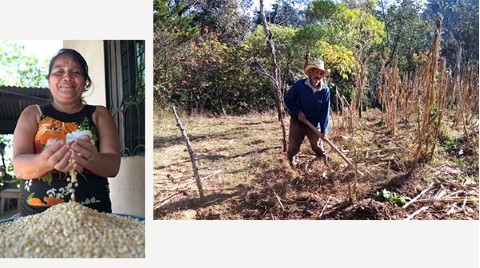For families living in poverty, steady work in the formal economy is uncommon. This means many parents of sponsored children work daily wage jobs as farmers, housekeepers or street vendors. The income they earn can vary from day-to-day, and some weeks can be more profitable than others.
This is a rough estimation of the income earned by a household for a typical month in this community.
It is monthly, and it’s challenging to estimate due to the unstable nature of work that families of our sponsored children typically engage in. Utilizing both governmental data and our organization’s own research, our staff works closely with families to best represent an average month of income for them. Factors such as fluctuating exchange rates, extended family networks and irregular incomes make it difficult to determine precise amounts.
We provide an average estimate of the monthly income for a typical household in their community.

For our sponsored families who live in more rural areas, farming, livestock, aquaculture and agricultural work is how they earn a living. In fact, more than two-thirds of the population in poor countries work in agriculture.* The life of a farmer is a labor intensive occupation, with long days spent in the elements. In Latin America, common exports are soybeans, pork, maize, poultry, animal feed, sugar, coffee, and fruits and vegetables.* For those living in coastal communities, like in the Philippines, many people rely on fishing, which is highly weather-dependent with earnings that can vary greatly.
Many parents, especially mothers of sponsored children, are domestic workers. This can mean jobs such as being a housemaid, nanny or gardener. They typically work for more affluent families and hold a schedule of 7:00 a.m. to 4:00 p.m., but in some locations, laws permit workdays of up to 12 hours. Often lacking a full education, domestic workers in our communities struggle to make what can be considered a minimum wage - even though their services are critical to the functioning of wealthier households.


Through temporary contracts, some parents will pursue construction jobs such as woodworking or masonry. The income is irregular, and the job isn’t registered or insured, which increases risk when work becomes dangerous. Although there are sometimes free courses available to learn how to work with these types of materials (wood, upholstery, paint, brick), this is often self-taught and labor-intensive work with long hours and low pay.
When our families are most desperate and other work is hard to come by, some parents (and children/youth) in our communities take to selling goods they’ve made on the street. Snacks and drinks are common items for sale, along with handmade items such as jewelry, clothing and face masks. Some people are also known to invest their own borrowed money to re-sell items, or even try to sell their own belongings, like portable radio sets or kitchen utensils.
